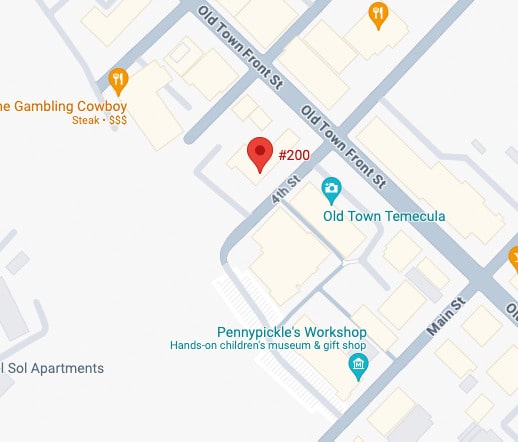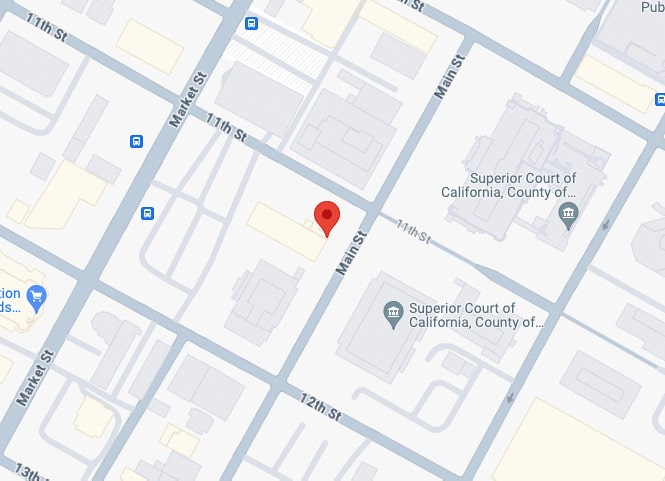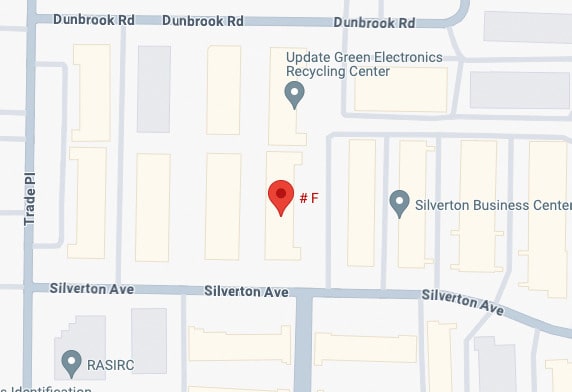Undoubtedly, drunk or impaired driving is the leading cause of road-related accidents. As part of the ongoing effort to curb or reduce road-related accidents, police departments have the authority to set DUI checkpoints to keep drunk or impaired drivers off the road. While being pulled over at a DUI checkpoint can be an unsettling and frustrating experience, you have legal rights.
Knowing what to do and not to do during your interaction with the officers can significantly impact the outcome of the alleged offense. This article will give you an understanding of the most common mistakes people make at a DUI checkpoint and how you can avoid them to stay on the safe side of the law.
DUI Checkpoint at a Glance
Also known as a sobriety checkpoint, a DUI checkpoint is a well-marked and lit temporary roadblock that law enforcement officers use to stop drivers they suspect could be driving under the influence. Once you stop at a DUI checkpoint, the police officer will ask you to lower the car window and hand over your driver's license.
After that, he/she will ask you a few questions and look keenly to see if you exhibit the following signs of intoxication:
- Red eyes.
- Slurred speech.
- Alcohol odor from your breath.
- Watery eyes.
If the investigating officer detects any of the above objective signs of intoxication, he/she will request you to step out of the vehicle for further DUI investigations. These investigations could include any or both of the following sobriety tests:
-
Field Sobriety Tests (FSTs)
The officers could require you to submit to a series of FSTs to determine if you have the mental and cognitive ability to drive like a sober and cautious driver would under similar circumstances. Some of the common standard sobriety tests the officer could require you to perform include:
- Walk-and-turn test.
- Horizontal gaze nystagmus test.
- One-leg-stand test.
-
A Breathalyzer Test
This sobriety test could also be necessary when determining whether a driver is impaired. A breathalyzer is a hand-held gadget that can help the officers at a DUI checkpoint determine your level of intoxication or blood alcohol concentration (BAC) level using your breath vapor.
If your breath vapor is 0.08% or above, the officer can legally arrest you on suspicion that you were drunk driving, which is illegal. Once a police officer selects your vehicle to pull over at a DUI checkpoint on suspicion that you were impaired driving, he/she could require you to perform various sobriety tests to determine whether you are under the influence of drugs or alcohol.
While police do not need probable cause to select your vehicle to pull over at a sobriety checkpoint, the checkpoint should meet particular strict legal requirements, including:
- The criteria for stopping suspected impaired drivers must be neutral.
- The supervising officers must make all operational decisions.
- The checkpoint's location should be in a reasonable and safe place on the road.
- The checkpoint should be advertised to the public ahead of time.
- The checkpoint duration and time should reflect a "good judgment".
- The amount of time the officer will detain a suspected impaired driver should be brief and minimum as possible.
- The officers should put safety precautions in place, for example, proper lighting.
If you are under arrest on suspicion that you were drunk driving, a skilled defense attorney can help you challenge the allegations for the best possible outcome. In addition to being your legal counsel, your defense attorney can also help you protect your innocence pending the alleged case judgment by requesting a release from jail on bail.
Understanding Common Mistakes That Drivers Make at a DUI Sobriety Checkpoint
Although several people have challenged the legality of DUI sobriety checkpoints, they are legal. When you find yourself driving into a DUI sobriety checkpoint, it is critical that you understand what to do and not do to stay on the safe side of the law. Below are common mistakes that people make at a DUI checkpoint, but you can avoid them:
Driving Erratically Near a Sobriety Checkpoint
As long as your maneuvers are not against traffic laws, you can avoid a sobriety checkpoint when you see it at a far distance. However, if you make a sudden U-turn immediately before a checkpoint, chances are the officer will suspect you could be impaired driving.
At the DUI checkpoint, an officer only needs reasonable suspicion to stop a vehicle for a DUI investigation. If you make an illegal or sudden U-turn, the officer at the checkpoint will likely suspect you could be drunk driving, meaning you will have to pull over for a brief DUI investigation. Other reasons that give the officer a reasonable suspicion that you could be impaired driving include:
- Driving extremely slowly.
- Making sudden stops.
- Making improper lane changes.
Even if you had one or two alcoholic beverages, do not panic if you are approaching a DUI checkpoint. If you stay in your lane and drive like a cautious driver, you can pass through the checkpoint without a DUI investigation.
Volunteering to Give Unnecessary Information
When you pull over at a sobriety checkpoint, you should be keen and careful about the information you decide to disclose to the officers. Unless the officer requires your driver's license, car registration details, insurance information, or your name, you are not legally obligated to provide further unnecessary information.
For instance, the officer could ask whether you had an alcoholic drink before you started your journey, but you do not have to answer this question even if you had half a glass of wine. Although the officer could seem friendly, any information you decide to volunteer can and will be used against you.
If the officer continues to ask confusing questions, respectfully tell him/her that you wish to exercise your legal right to remain silent.
Being Rude to the Officers
Understand that the primary purpose of a DUI sobriety checkpoint is to keep our roads safer for motorists, cyclists, pedestrians, and all other road users. Therefore, when the police select your vehicle to pull over for a DUI investigation, being rude to the officers will not help, even if you believe the checkpoint is probably illegal.
Acting rudely toward an officer at a DUI checkpoint will make him/her scrutinize your actions and words more closely to find incriminating evidence to use against you. Even if you are angry or in a hurry to arrive at an important meeting or appointment, you should speak to the officer respectively.
Consenting or Agreeing to Take the Preliminary Alcohol Screening (PAS) Test
As long as you are 21 years and above and are not on DUI probation, you can legally decline to take a PAS test when the police select your vehicle to pull over at a DUI checkpoint. During a PAS test at the DUI checkpoint, the officers will use a roadside breathalyzer test to determine or gauge whether you were drunk driving.
Unlike chemical blood or urine tests, breathalyzer test results are more prone to errors and less reliable because this device estimates your BAC level using your breath vapor. Additionally, your breathalyzer test results could be inaccurate because of other innocent reasons such as:
- Acid reflux.
- Heartburn.
- Gastronomical reflux disease.
If you have any of the above health issues, a breathalyzer could give false positive test results even if you did not consume any alcoholic beverage. While your defense attorney can challenge the accuracy of a breathalyzer test results in determining your level of intoxication at trial, you could want to think twice before consenting to take a pre-arrest PAS test in the first place.
Agreeing to Perform FSTs
Agreeing to perform FSTs is one of the biggest mistakes you can make at a DUI checkpoint because the results of these tests could be detrimental to your case. Most motorists are unaware that the one-leg-stand, walk-and-turn tests, and other FSTs are voluntary, meaning you can legally and respectfully refuse to perform any of them as long as you are:
- Aged 21 years and above.
- You are not on probation or parole for any offense.
Since the prosecutor can use the arresting officer's testimony and performance results on the FSTs against you, it could be beneficial to refuse them if you are under investigation on suspicion that you were impaired driving. That is true, especially if you have difficulty concentrating or poor balance.
While the standard FSTs mentioned above can help an officer at a DUI checkpoint determine whether a suspected driver is impaired, it does not mean they are 100% accurate. Many symptoms caused by alcohol intoxication can also be due to fatigue. Additionally, other factors beyond your control can also affect your performance results on FSTs, including:
- Environmental conditions, for example, fog or rain.
- Medications.
- Injuries, especially a knee injury.
- Improper instructions or officer's error.
- Age and weight.
- Improper lighting.
- Uneven ground surface.
Although the officer will not tell you and will make it seem like you must perform these tests, it is a wise idea to decline or refuse to take them because of their inherent flaws and inaccuracies. The officer will not arrest you for refusing to perform these tests, but he/she can still arrest you if he/she has adequate probable cause to believe that you were impaired driving.
When that happens, he/she will drive you to the station, where you will perform a chemical test to determine your level of intoxication.
Refusing a Chemical Test
Another common mistake that most motorists make is refusing a chemical test. According to Vehicle Code (VC) 23612, you are legally obligated to consent to a chemical test upon arrest for an alleged DUI offense. For the sake of this statute, a chemical test could include urine, blood, or breath tests to determine your BAC level.
If blood or breath testing equipment is unavailable, the officer could require you to submit a urine sample to determine your level of intoxication. Hemophiliacs and arrestees on blood thinners can also give urine samples to determine their BAC level.
The severity of the penalties you will face upon conviction for VC 23612 violation will depend on the number of prior DUI offenses you have on your record in the last ten (10) years. If you are a first-time offender, a conviction for VC 23612 violation can attract the following potential penalties:
- Driver's license suspension for up to one (1) year.
- Up to $150 maximum fine.
In addition to the above penalties, refusal of a chemical test upon arrest will also attract sentence enhancement of not more than two days in jail upon conviction for the alleged DUI offense. Fortunately, a reliable and seasoned DUI attorney can challenge the alleged VC 23162 violation charge by arguing with proper evidence that:
- The officers did not ask you to take the chemical test.
- You did not purposely refuse to take the test.
- The officer did not inform you of the consequences of refusing the chemical test.
Consenting to a Voluntary Search on Your Person or Vehicle
Generally speaking, according to the constitution's fourth amendment, you have protection against unlawful or warrantless searches by a law enforcement officer. That means a police officer has no legal right to search your person or vehicle when you pull over at a DUI checkpoint unless he/she has probable cause, a search warrant, or your consent.
Based on the circumstances of your unique case, a police officer could have probable cause to search your person, vehicle, or backpack if he/she believes:
- Evidence of a crime is available or present.
- You are a culprit in any criminal offense.
When a police officer obtains incriminating evidence against you in your vehicle through an illegal search, the court will consider this evidence inadmissible, meaning it will not be applicable against you. However, your attorney has to file a motion with the court presiding over your case to convince a judge that the prosecutor's evidence against you is unlawful.
When this motion works in your favor, the court will dismiss or reduce the alleged DUI charge to a lighter offense. If not, the court will accept the evidence, and the prosecutor will use it against you to prove the allegations you are facing are true beyond a reasonable doubt.
For that reason, when the police request to search your vehicle after a stop at a DUI checkpoint, you do not have to accept. You can respectfully refuse an illegal or warrantless search by stating that you have a legal right to privacy.
Lying to the Officers
When the officer(s) at the DUI checkpoint asks you a question about how many drinks you have had, it would be best to remain silent even if you have had one or two. Lying to the officer that you did not have any alcoholic drink could be detrimental to your case because a breathalyzer or blood test could show otherwise.
Driving into a Checkpoint With an Open and Visible Alcohol Container in Your Vehicle
Aside from landing you a traffic ticket for having an open alcohol container in your vehicle, full or empty bottles of alcohol could compel an officer to conduct a breathalyzer or FSTs on you. That is true even if you seem sober, or perhaps these alcohol bottles belonged to a friend or a passenger.
Therefore, even if you do not drink, do not make the mistake of carrying an open alcohol container in your vehicle, especially on weekends when the police are keen to keep impaired drivers off the road.
Failing to Seek an Attorney's Legal Guidance
Although a stop at a DUI checkpoint does not mean criminal charges are imminent, seeking an attorney's legal guidance could be helpful to your case. Your defense attorney can guide you on what to do and not do during the DUI investigation to increase your odds of beating a possible DUI charge.
In the worst-case scenario, the police could arrest you on suspicion that you were impaired driving. When that happens, your defense attorney can investigate the case and prepare the best defenses to challenge the alleged DUI charge for the best possible outcome, which could include:
- Case dismissal.
- A lighter charge.
Bottomline
A DUI charge is a severe criminal offense that can ruin your future and reputation upon conviction. As a licensed driver, it is wise to understand what to do and not do once you encounter a DUI checkpoint on the road to avoid making a mistake that could worsen your case.
While they could seem "petty," the above-explained common DUI checkpoint mistakes could be disastrous to your case and future. A skilled attorney understands this and will do his/her best to fight for the best possible outcome if you are in legal custody for an alleged DUI offense.
Find a Bail Bond Company Near Me
Apart from working with an attorney, you could need the services of a bail bondsman or agent if you are in legal custody for an alleged DUI offense and cannot afford your bail. At Justice Bail Bonds, we understand how stressful it can be to sit behind bars because you cannot afford bail, especially at night when your friends or relatives are asleep.
If you are in jail for an alleged DUI offense, our understanding bond agents can help you post a bail bond to obtain your freedom within the shortest time possible. If you have been arrested please contact us at 951-445-4155 if you are seeking bail bond services in Temecula.










